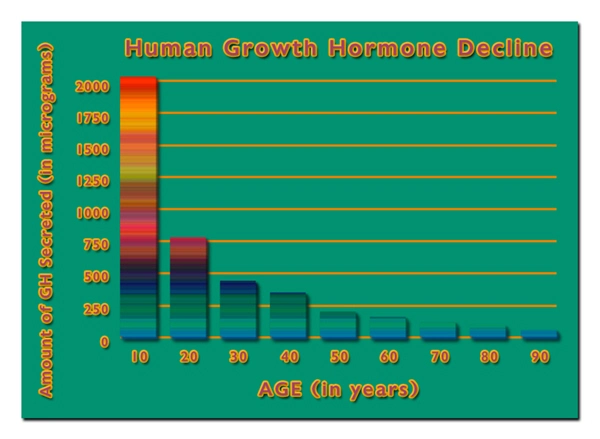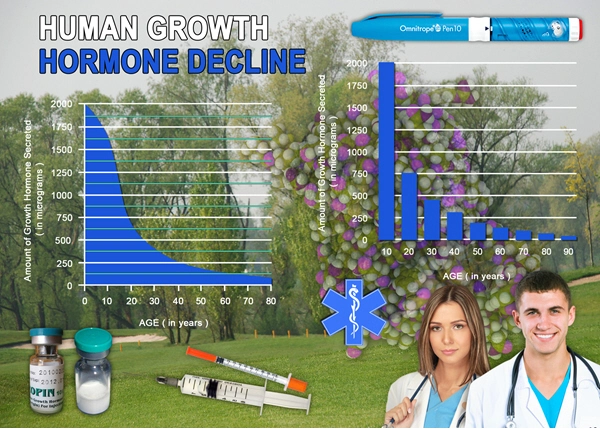Introduction to Soft Erections
Soft erections, medically known as erectile dysfunction (ED), are a common concern among American men, affecting their quality of life and intimate relationships. This condition is characterized by the inability to achieve or maintain an erection sufficient for satisfactory sexual performance. While it can be a source of distress, understanding and addressing soft erections through a collaborative healthcare approach can lead to effective management and improved well-being.
Understanding the Causes of Soft Erections
Erectile dysfunction can stem from a variety of factors, including psychological issues such as stress, anxiety, or depression, and physical conditions like diabetes, hypertension, or cardiovascular disease. Lifestyle choices, such as smoking, excessive alcohol consumption, and a sedentary lifestyle, also play a significant role in the development of ED. Recognizing the multifactorial nature of soft erections is crucial for developing a comprehensive treatment plan.
The Importance of Collaborative Healthcare
Addressing soft erections effectively requires a collaborative effort between the patient and healthcare providers. This approach involves open communication, thorough evaluation, and a tailored treatment plan that may include lifestyle modifications, medication, therapy, or a combination of these interventions. By working together, patients and healthcare professionals can identify the underlying causes of ED and implement strategies to improve erectile function.
Lifestyle Modifications for Improved Erection Quality
One of the first steps in managing soft erections is to address modifiable risk factors through lifestyle changes. Regular physical activity, a balanced diet, and weight management can significantly improve cardiovascular health, which is closely linked to erectile function. Additionally, quitting smoking and reducing alcohol intake can have a positive impact on ED. Patients are encouraged to work with their healthcare providers to develop a personalized plan that incorporates these lifestyle modifications.
Medical Interventions for Soft Erections
When lifestyle changes alone are insufficient, medical interventions may be necessary. Oral medications, such as phosphodiesterase type 5 (PDE5) inhibitors, are commonly prescribed to enhance blood flow to the penis and improve erectile function. In cases where oral medications are ineffective or contraindicated, other treatments like penile injections, vacuum erection devices, or surgical options may be considered. It is essential for patients to discuss the potential benefits and risks of these treatments with their healthcare providers.
The Role of Psychological Support
Psychological factors, such as performance anxiety or relationship issues, can contribute to soft erections. In these cases, psychological support through counseling or sex therapy can be beneficial. These interventions aim to address the emotional and relational aspects of ED, helping men to overcome psychological barriers and improve their sexual health. Collaborative healthcare involves integrating psychological support with medical treatment to provide a holistic approach to managing soft erections.
The Importance of Regular Follow-Up
Managing soft erections is an ongoing process that requires regular follow-up with healthcare providers. Monitoring the effectiveness of treatment, adjusting interventions as needed, and addressing any new concerns are essential components of successful ED management. Patients should feel empowered to communicate openly with their healthcare team and seek support when needed.
Conclusion: Empowering Men Through Collaborative Care
Soft erections are a common issue that can be effectively managed through a collaborative healthcare approach. By understanding the causes of ED, implementing lifestyle modifications, exploring medical interventions, and seeking psychological support, American men can improve their erectile function and overall quality of life. Embracing a partnership with healthcare providers and actively participating in their treatment plan can lead to successful outcomes and a renewed sense of well-being.

- A Comprehensive Guide to Understanding Erectile Rigidity: The Labyrinth of Soft Erections [Last Updated On: February 25th, 2025] [Originally Added On: February 25th, 2025]
- The Gradual Decline: Unraveling the Science of Softening Erections [Last Updated On: February 26th, 2025] [Originally Added On: February 26th, 2025]
- Revolutionizing Gender Stereotypes: Mastering Confidence Amidst Soft Erections [Last Updated On: February 27th, 2025] [Originally Added On: February 27th, 2025]
- Reviving Manhood: The Power of Lifestyle Alterations in Enhancing Erectile Potency [Last Updated On: February 28th, 2025] [Originally Added On: February 28th, 2025]
- Unfolding Silent Battles: Personal Narratives of Men Confronting Erectile Dysfunction [Last Updated On: February 28th, 2025] [Originally Added On: February 28th, 2025]
- The Power of the Psyche: A Deep Dive Into the Effects of Psychological Stress on Male Sexual Health [Last Updated On: March 1st, 2025] [Originally Added On: March 1st, 2025]
- Demystifying the Stigma: An Objective Discourse on Erectile Dysfunction [Last Updated On: March 2nd, 2025] [Originally Added On: March 2nd, 2025]
- Enhancing Erectile Function Through Exercise: Understanding the Benefits of Physical Activity for Combating Erectile Dysfunction [Last Updated On: March 3rd, 2025] [Originally Added On: March 3rd, 2025]
- Nutritional Strategies to Enhance Erectile Function and Health [Last Updated On: March 4th, 2025] [Originally Added On: March 4th, 2025]
- From Flab to Firm: The Role of Weight Loss in Enhancing Male Sexual Health [Last Updated On: March 5th, 2025] [Originally Added On: March 5th, 2025]
- Exploring Sleep's Impact on Erectile Function and Male Sexual Health [Last Updated On: March 5th, 2025] [Originally Added On: March 5th, 2025]
- Enhancing Erection Quality: The Role of Meditation and Mindfulness in American Males [Last Updated On: March 5th, 2025] [Originally Added On: March 5th, 2025]
- Understanding and Managing Soft Erections: Causes, Strategies, and Treatments [Last Updated On: March 6th, 2025] [Originally Added On: March 6th, 2025]
- The Impact of Hormonal Balance on Male Sexual Health: Testosterone, Estrogen, and Erectile Function [Last Updated On: March 7th, 2025] [Originally Added On: March 7th, 2025]
- The Crucial Link Between Blood Flow and Erectile Function: Vascular Insights for Men [Last Updated On: March 8th, 2025] [Originally Added On: March 8th, 2025]
- The Interconnection of Health and Erectile Dysfunction: A Holistic Wellness Approach for Men [Last Updated On: March 9th, 2025] [Originally Added On: March 9th, 2025]
- Aging and Soft Erections: Causes, Management, and Support for American Males [Last Updated On: March 10th, 2025] [Originally Added On: March 10th, 2025]
- Debunking Myths: The Truth About Soft Erections in American Men [Last Updated On: March 14th, 2025] [Originally Added On: March 12th, 2025]
- Navigating the Challenges of Drug-Induced Erectile Dysfunction in American Males [Last Updated On: March 13th, 2025] [Originally Added On: March 13th, 2025]
- Mastering Stress: Strategies to Overcome Stress-Induced Erectile Challenges in American Men [Last Updated On: March 15th, 2025] [Originally Added On: March 15th, 2025]
- Understanding Soft Erections: Causes, Impacts, and Treatment Options for American Males [Last Updated On: March 17th, 2025] [Originally Added On: March 17th, 2025]
- Counseling's Role in Managing Soft Erections: A Holistic Approach [Last Updated On: March 17th, 2025] [Originally Added On: March 17th, 2025]
- Vitamins and Minerals: Enhancing Erection Quality and Sexual Health [Last Updated On: March 17th, 2025] [Originally Added On: March 17th, 2025]
- Herbal Remedies for Enhancing Erectile Function in American Males [Last Updated On: March 18th, 2025] [Originally Added On: March 18th, 2025]
- Smoking's Impact on Erectile Dysfunction: Benefits of Quitting for American Men [Last Updated On: March 19th, 2025] [Originally Added On: March 19th, 2025]
- Enhancing Erection Health: Diet, Exercise, Stress Management, and Holistic Wellness Strategies [Last Updated On: March 20th, 2025] [Originally Added On: March 20th, 2025]
- Soft Erections in Young Men: Causes and Effective Solutions Explored [Last Updated On: March 20th, 2025] [Originally Added On: March 20th, 2025]
- Diagnosing Soft Erections: A Comprehensive Guide to Understanding and Managing ED [Last Updated On: March 20th, 2025] [Originally Added On: March 20th, 2025]
- Alcohol's Impact on Erection Quality: Strategies for American Males [Last Updated On: March 21st, 2025] [Originally Added On: March 21st, 2025]
- American Couples Overcoming Soft Erections: Communication, Therapy, and Lifestyle Changes [Last Updated On: March 22nd, 2025] [Originally Added On: March 22nd, 2025]
- Soft Erections and Mental Health: Understanding and Addressing the Connection [Last Updated On: March 22nd, 2025] [Originally Added On: March 22nd, 2025]
- Genetic Factors in Erectile Dysfunction: Insights and Implications for American Males [Last Updated On: March 22nd, 2025] [Originally Added On: March 22nd, 2025]
- Nitric Oxide's Role in Male Erections: Combating Soft Erections in American Men [Last Updated On: March 22nd, 2025] [Originally Added On: March 22nd, 2025]
- Workplace Stress and Its Impact on American Men's Sexual Health and ED [Last Updated On: March 22nd, 2025] [Originally Added On: March 22nd, 2025]
- Behavioral Strategies to Overcome Soft Erections in American Men [Last Updated On: March 22nd, 2025] [Originally Added On: March 22nd, 2025]
- Cardiovascular Health's Impact on Erection Quality: A Comprehensive Guide [Last Updated On: March 22nd, 2025] [Originally Added On: March 22nd, 2025]
- Biofeedback: Enhancing Erectile Control and Addressing Soft Erections in Men [Last Updated On: March 22nd, 2025] [Originally Added On: March 22nd, 2025]
- Exploring Alternative Medicine for Enhancing Erectile Health in American Men [Last Updated On: March 23rd, 2025] [Originally Added On: March 23rd, 2025]
- Pelvic Floor Exercises: Enhancing Erection Quality and Sexual Health in Men [Last Updated On: March 23rd, 2025] [Originally Added On: March 23rd, 2025]
- Embracing Vulnerability: Redefining Sexual Success with Soft Erections [Last Updated On: March 23rd, 2025] [Originally Added On: March 23rd, 2025]
- Physical Therapy: A Promising Non-Invasive Treatment for Soft Erections [Last Updated On: March 24th, 2025] [Originally Added On: March 24th, 2025]
- Economic Impact of Soft Erections on American Men: Costs and Solutions [Last Updated On: March 24th, 2025] [Originally Added On: March 24th, 2025]
- Soft Erections vs. Erectile Dysfunction: Understanding and Treatment for American Males [Last Updated On: March 24th, 2025] [Originally Added On: March 24th, 2025]
- Soft Erections: Understanding, Communicating, and Overcoming ED in Relationships [Last Updated On: March 24th, 2025] [Originally Added On: March 24th, 2025]
- Exploring Alternative Therapies for Soft Erections: A Comprehensive Guide [Last Updated On: March 24th, 2025] [Originally Added On: March 24th, 2025]
- Innovative Technologies Revolutionizing Erectile Dysfunction Treatment [Last Updated On: March 24th, 2025] [Originally Added On: March 24th, 2025]
- Understanding Soft Erections: Causes, Diagnosis, and Treatment Options for American Men [Last Updated On: March 24th, 2025] [Originally Added On: March 24th, 2025]
- Managing Soft Erections: Understanding, Preparing, and Treating ED Effectively [Last Updated On: March 24th, 2025] [Originally Added On: March 24th, 2025]
- Obesity and Soft Erections: The Crucial Role of Weight Management in Sexual Health [Last Updated On: March 24th, 2025] [Originally Added On: March 24th, 2025]
- Managing Soft Erections: Beyond Standard PDE5 Inhibitors [Last Updated On: March 25th, 2025] [Originally Added On: March 25th, 2025]
- Metabolic Syndrome and Soft Erections: Understanding the Link in American Males [Last Updated On: March 25th, 2025] [Originally Added On: March 25th, 2025]
- Environmental Toxins: A Hidden Threat to Male Sexual Health and Erections [Last Updated On: March 25th, 2025] [Originally Added On: March 25th, 2025]
- Mindfulness Techniques to Manage and Overcome Soft Erections: A Step-by-Step Guide [Last Updated On: March 25th, 2025] [Originally Added On: March 25th, 2025]
- Soft Erections and Self-Esteem: Psychological Strategies for Recovery and Confidence [Last Updated On: March 25th, 2025] [Originally Added On: March 25th, 2025]
- Hormonal Health and Erections: Optimizing Endocrine Function for Better Sexual Outcomes [Last Updated On: March 26th, 2025] [Originally Added On: March 26th, 2025]
- Superfoods Boost Vascular Health, Combat Soft Erections in American Men [Last Updated On: March 26th, 2025] [Originally Added On: March 26th, 2025]
- Soft Erections and Prostate Health: A Vital Connection for American Men [Last Updated On: March 27th, 2025] [Originally Added On: March 27th, 2025]
- Overcoming Soft Erections: Medical, Lifestyle, and Psychological Solutions for American Men [Last Updated On: March 27th, 2025] [Originally Added On: March 27th, 2025]
- Enhancing Sexual Stamina and Managing Soft Erections: A Comprehensive Guide [Last Updated On: March 27th, 2025] [Originally Added On: March 27th, 2025]
- Sleep Disorders Impact on Erections: Insights and Management for American Men [Last Updated On: March 27th, 2025] [Originally Added On: March 27th, 2025]
- Sedentary Lifestyles and Erection Health: Impact and Exercise Solutions for American Males [Last Updated On: March 27th, 2025] [Originally Added On: March 27th, 2025]
- Digital Health Innovations for Monitoring and Managing Soft Erections in Men [Last Updated On: March 27th, 2025] [Originally Added On: March 27th, 2025]
- Understanding and Treating Soft Erections: A Comprehensive Guide for American Men [Last Updated On: March 27th, 2025] [Originally Added On: March 27th, 2025]
- Understanding and Overcoming Soft Erections: A Comprehensive Guide for American Males [Last Updated On: March 27th, 2025] [Originally Added On: March 27th, 2025]
- Chronic Inflammation and Soft Erections: Impacts on Male Sexual Health [Last Updated On: March 27th, 2025] [Originally Added On: March 27th, 2025]
- Erection Physiology: Understanding and Addressing Soft Erections in American Males [Last Updated On: March 28th, 2025] [Originally Added On: March 28th, 2025]
- Vacuum Pumps and Innovative Devices: Enhancing Erection Quality and Sexual Health [Last Updated On: March 28th, 2025] [Originally Added On: March 28th, 2025]
- Medication-Induced ED: Causes, Mechanisms, and Management Strategies for American Males [Last Updated On: March 28th, 2025] [Originally Added On: March 28th, 2025]
- Cardiovascular Exercise Boosts Erection Quality in American Males [Last Updated On: March 29th, 2025] [Originally Added On: March 29th, 2025]
- Stress Management Techniques to Improve Men's Erectile Function: A Comprehensive Guide [Last Updated On: March 30th, 2025] [Originally Added On: March 30th, 2025]
- Understanding Soft Erections: Causes, Impacts, and Embracing New Masculinity [Last Updated On: March 30th, 2025] [Originally Added On: March 30th, 2025]
- Nerve Health's Crucial Role in Enhancing Erectile Function for American Males [Last Updated On: March 30th, 2025] [Originally Added On: March 30th, 2025]
- Innovative Research and Technology Revolutionizing Soft Erection Treatments [Last Updated On: April 3rd, 2025] [Originally Added On: April 3rd, 2025]
- Soft Erections: Causes, Impacts, and Effective Management Strategies for American Men [Last Updated On: April 4th, 2025] [Originally Added On: April 4th, 2025]
- Lifestyle Changes to Enhance Erection Quality and Combat Erectile Dysfunction [Last Updated On: April 5th, 2025] [Originally Added On: April 5th, 2025]
- Navigating Soft Erections: Open Dialogue and Medical Insights for American Men [Last Updated On: April 7th, 2025] [Originally Added On: April 7th, 2025]
- Vascular Health's Crucial Role in Enhancing Erection Quality for American Men [Last Updated On: April 7th, 2025] [Originally Added On: April 7th, 2025]
- Cortisol's Impact on Erectile Function: Managing Stress for Better Sexual Health [Last Updated On: April 8th, 2025] [Originally Added On: April 8th, 2025]
- Soft Erections: Broader Impacts on American Men's Lives and Comprehensive Solutions [Last Updated On: April 8th, 2025] [Originally Added On: April 8th, 2025]
- Relationship Dynamics and Their Impact on Soft Erections in American Males [Last Updated On: April 10th, 2025] [Originally Added On: April 10th, 2025]



List of USA state clinics - click a flag below for blood testing clinics.
Word Count: 567



















































